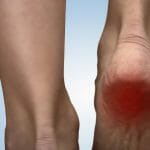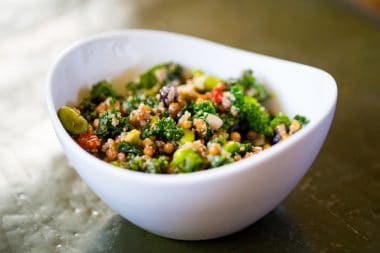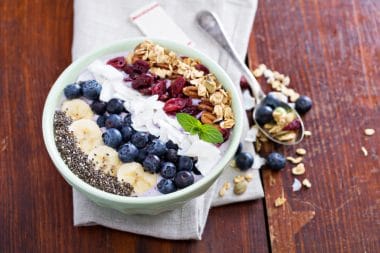Is it Groundhog Day? Here we go again with the question on eggs. A recent article on my local news station says that upon further research the “healthy egg” debate is reopened. So we went from eggs being healthy to not healthy to healthy and now we are back to not healthy.
This is what the new research claims: Adults who ate about 1 ½ eggs daily had a slightly higher risk of heart disease than those who ate no eggs. The study showed the more eggs, the greater the risk. The chances of dying early were also elevated.
Eggs are inexpensive, packed with nutrients, versatile in cooking, not high in calories (75 calories for a medium hardboiled egg) and tasty.
The white part of the egg and the yolk are both beneficial. Some vitamins are found in each part, so by consuming both you get the best nutrition possible.
Eggs are full of nutrition:
Protein – Contain all 9 essential amino acids that we cannot make in our bodies and must get from a food source. To rate high on a protein assessment you must have these amino acids present. Protein helps to maintain muscle and improve physical performance.
Selenium – Selenium is a powerful anti-inflammatory mineral. Some eople with cardiovascular disease and cardiac arrest have a deficiency in this mineral.
Choline – Choline is a macronutrient that is important for brain development, nerve function, muscle control and metabolism. It has also been shown to reduce the risk of breast cancer. Choline also can help keep our memories sharp as we age.
Lutein and Zeaxanthin – These are nutrients in the yolk that help prevent or slow macular degeneration of your eyes.
Vitamin D – We must get vitamin D from an outside source. Our bodies cannot produce it. That is one reason why sunshine is so beneficial for us. But eggs are a dietary source of Vitamin D. The Vitamin D in eggs is helpful for preventing osteoporosis.
Vitamins B2, B3, B5, B6, B12 and folate – The B Vitamin family gives you energy and can help perk you up in the middle of the day. Vitamins B2 and B3 are found in the egg white. While Vitamins B5, B6, B12 and folate are found in the yolk.
Minerals Zinc, Iron and Copper
Vitamins A, D, E, & K
You will have to watch the ever changing research and make your own decision on how often and how many eggs you want to put in your diet. But for me, I am kind of hungry and think I may go have a few eggs for lunch.
Eggs A Healthy Choice or Not? #HealthStatus
People who eat eggs are:
- 1More satiated.
- 2Consume less calories throughout the day.
- 3Have higher energy levels.
“A study published in Paediatrics magazine has suggested that giving young children just one egg a day for six months, alongside a diet with reduced sugar-sweetened foods, may help them achieve a healthy height and prevent stunting.”
See Full Article At:Â Â https://www.wthr.com/article/are-eggs-good-or-bad-you-new-research-rekindles-debate
Sources:
https://www.bbcgoodfood.com/howto/guide/ingredient-focus-eggs
https://www.naturalfoodseries.com/11-benefits-eggs/









Reply